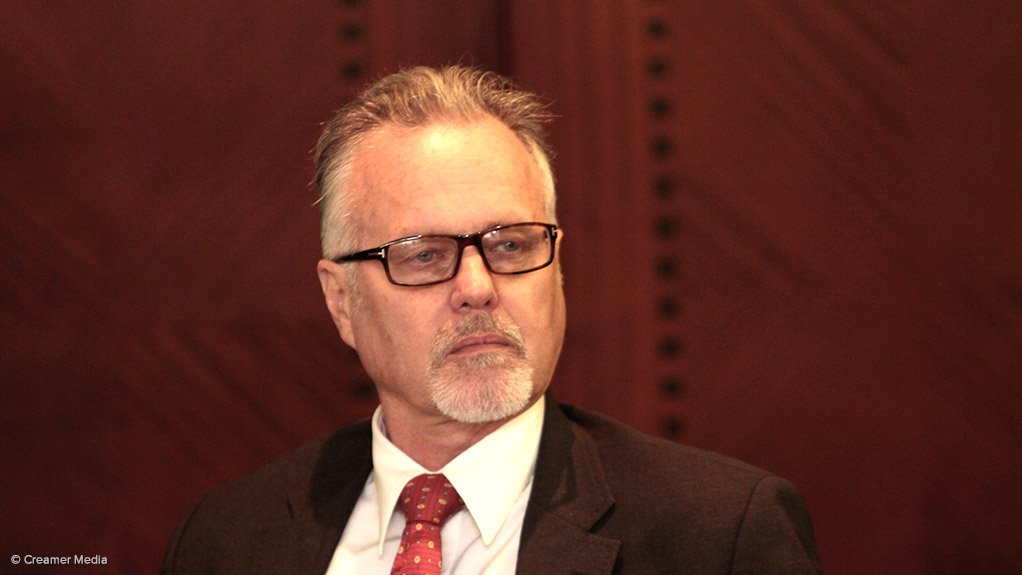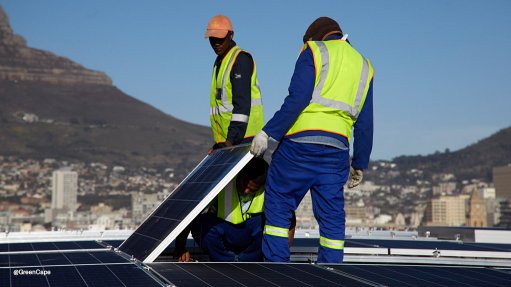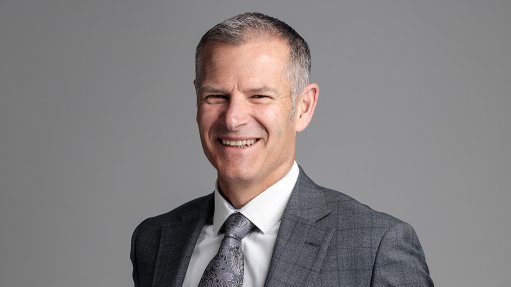Call made for major overhaul of SA’s electricity planning system
South Africa’s prevailing electricity planning and investment paradigm has come in for sharp criticism from experts, who argue that a new, more responsive process is required to enable the country to adapt to changing circumstances, including changes to the demand trajectory.
University of Cape Town Graduate School of Business professor, Anton Eberhard, who is also a member of the National Planning Commission, is a particularly strong advocate of reform. But he found broad-ranging support from various other energy specialists attending the Fossil Fuel Foundation’s South Africa’s Electricity Supply Conference on Tuesday.
Earlier, Eskom CEO Brian Dames used a platform provided by the Gordon Institute of Business Science to reiterate the need for firm decisions to be made about the introduction of new capacity from 2020, by which time the utility’s Medupi and Kusile coal-fired power stations should be integrated to the network.
Dames said it was still far from certain as to which new generations would be added thereafter, indicating that a third new coal-fired power station could not be discounted, nor could a smaller nuclear roll-out than the 9 600 MW fleet proposal included in the current version of the Integrated Resource Plan (IRP). He also argued that the introduction of gas could be a “game changer” and agreed that gas was under represented in the current plan.
Eberhard argued it was “potentially disastrous” for the economy to rely on outdated data and on plans that rely heavily on large, capital-intensive multi-year investment programmes, particularly in a context of uncertainty around future demand and costs.
The IRP, he argued, provided a “useful base”, but a more dynamic planning system was required to ensure that the plan is “continually updated”, adding that the current version, which covers the period from 2010 to 2030, was “now questionable”.
In future the IRP should be indicative, rather than the prevailing situation whereby the regulator could only licence a new power generation plant if the Minister has made a ‘determination’ in terms of the IRP.
“The law or regulations should be changed to allow the regulator to licence any new generation capacity that contributes economically to supply. The system operator should be charged with reporting on a regular basis to the regulator on system adequacy, and the Minister should be empowered to intervene only when it is clear that security of supply is at risk,” Eberhard argued.
“Thankfully, and perhaps in recognition of this view, the Department of Energy (DoE) has asked Eskom to update the IRP and hopefully new draft plans will soon be published for public scrutiny and feedback,” Eberhard said.
The DoE, which recently published a draft Integrated Energy Plan covering all energy subsectors, including electricity, has indicated that the current version of the IRP, which covers the period from 2010 to 2030, was being updated in parallel and would be extended to 2050.
Besides overhauling the planning mechanisms, Eberhard argued that there was a need to “translate planning scenarios, in a less dirigiste manner, into investment decisions”.
He described the powers currently vested in the Energy Minister as being unrealistically ambitious. “South Africa is an open economy with a diversity of entrepreneurs and investors who no doubt see a myriad of options around new power. The Minister cannot possibly see all of these options and opportunities; space needs to be created around market-generated power options.”
South African Independent Power Producers Association’s Doug Kuni also expressed frustration, stating, that while there was general recognition of the negative economic consequences of South Africa’s current electricity shortages, “it was difficult to see any display of urgency” to deal with the constraints to new investment.
Kuni described the progress made in the procurement of renewable energy as impressive, but noted that there had been far less progress in the procurement of baseload capacity from independent power producers (IPP).
Former Energy Minister Dipuo Peters promulgated ‘determinations’ in December last year opening the way for the procurement, by 2020, of a further 3 500 MW of renewables over and above the 3 725 MW currently being procured, as well as 2 500 MW of IPP coal, 2 600 MW of IPP gas and 2 600 MW of imported hydro.
However, Kuni indicated that he was not optimistic that the request for proposals for the baseload IPPs would be issued during 2013 and said that it could be years before the projects reached financial close, and many more years to allow for construction.
Comments
Press Office
Announcements
What's On
Subscribe to improve your user experience...
Option 1 (equivalent of R125 a month):
Receive a weekly copy of Creamer Media's Engineering News & Mining Weekly magazine
(print copy for those in South Africa and e-magazine for those outside of South Africa)
Receive daily email newsletters
Access to full search results
Access archive of magazine back copies
Access to Projects in Progress
Access to ONE Research Report of your choice in PDF format
Option 2 (equivalent of R375 a month):
All benefits from Option 1
PLUS
Access to Creamer Media's Research Channel Africa for ALL Research Reports, in PDF format, on various industrial and mining sectors
including Electricity; Water; Energy Transition; Hydrogen; Roads, Rail and Ports; Coal; Gold; Platinum; Battery Metals; etc.
Already a subscriber?
Forgotten your password?
Receive weekly copy of Creamer Media's Engineering News & Mining Weekly magazine (print copy for those in South Africa and e-magazine for those outside of South Africa)
➕
Recieve daily email newsletters
➕
Access to full search results
➕
Access archive of magazine back copies
➕
Access to Projects in Progress
➕
Access to ONE Research Report of your choice in PDF format
RESEARCH CHANNEL AFRICA
R4500 (equivalent of R375 a month)
SUBSCRIBEAll benefits from Option 1
➕
Access to Creamer Media's Research Channel Africa for ALL Research Reports on various industrial and mining sectors, in PDF format, including on:
Electricity
➕
Water
➕
Energy Transition
➕
Hydrogen
➕
Roads, Rail and Ports
➕
Coal
➕
Gold
➕
Platinum
➕
Battery Metals
➕
etc.
Receive all benefits from Option 1 or Option 2 delivered to numerous people at your company
➕
Multiple User names and Passwords for simultaneous log-ins
➕
Intranet integration access to all in your organisation





















